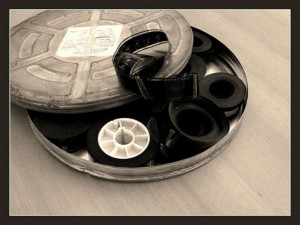This time on GenreList: Reboot or Remake? Every year, Hollywood seems to be revisiting old classics and revising them into new material, some inventing stories whole cloth. This week, I'm going over what you should expect when you pull a remake off the shelf.
A remake is a new way of looking at older source material. Often, this is handled as a modern update to an older film—the original 1932 version of Scarface was based on the life of Al Capone and follows a mob boss and bootlegger who attempts to take control of the crime in his city. Brian De Palma’s Scarface was updated for the audience of 1983, and changes the setting from Chicago to Miami and bootlegging to drug running, but follows a very similar plot. Both films explore issues of immigrant life, police corruption, the lure of crime and fatal hubris, while adopting an aesthetic appropriate for the audience of the day.
It is hard to imagine a film about wandering warriors in feudal Japan having much in common with a gunslinger western set in Mexico, but that’s exactly what you’ll find if you watch Seven Samurai and The Magnificent Seven. John Sturges' epic western is a tribute to Seven Samurai, including translated lines and precisely shot scenes that mirror Akira Kurosawa's masterpiece. Together with Yojimbo (which was unofficially remade as Fistful of Dollars), Seven Samurai would go on to have a profound impact on the western genre, introducing themes of honor, redemption and fatalism that were rarely seen in earlier films of the type.
If a film sticks to the plot, dialogue or themes of another work, you're probably looking at a remake. Next month, we'll explore the changes, revisions and marketing differences that move a film into reboot territory!



Add a comment to: GenreList: Reboot, Remake Review